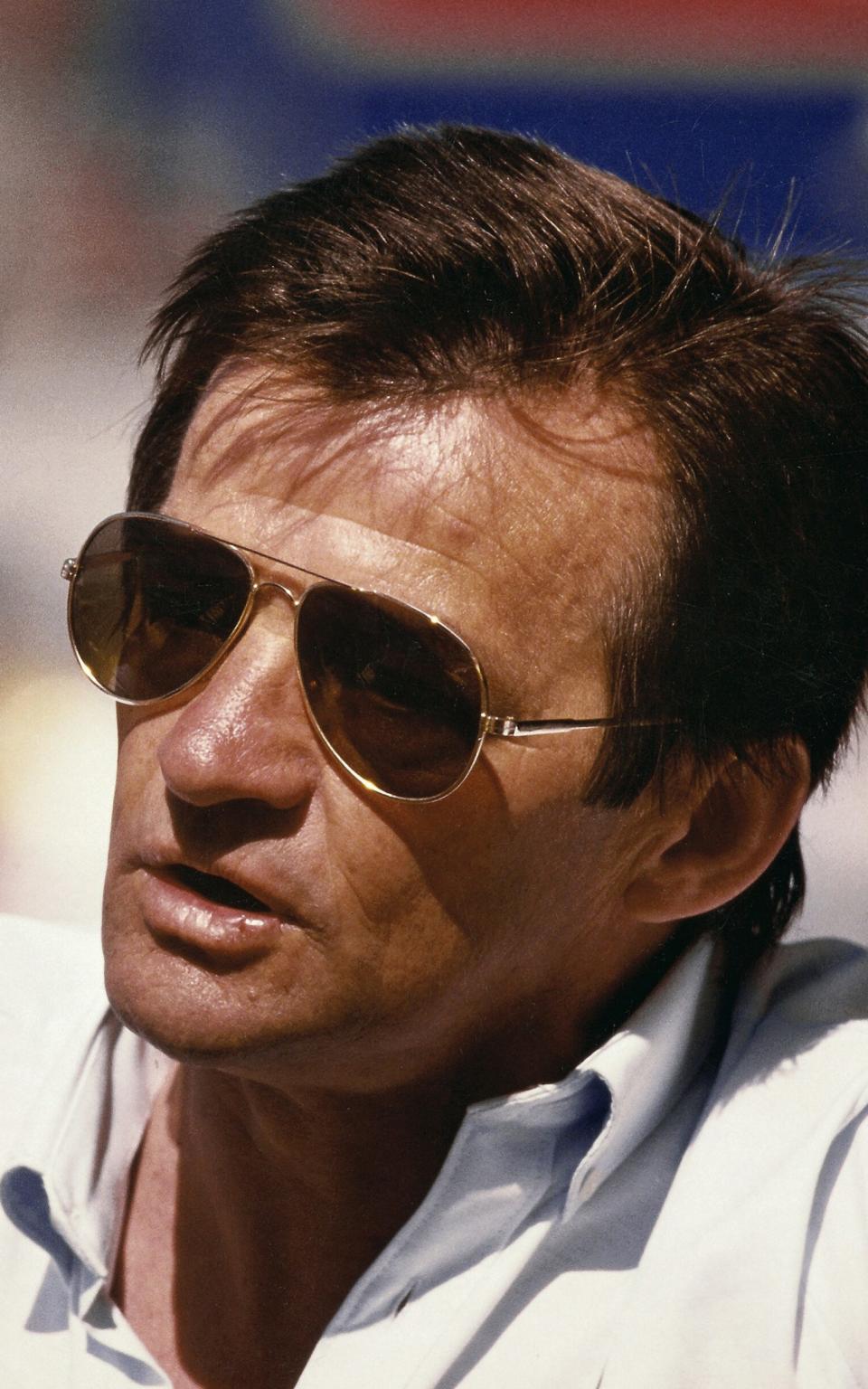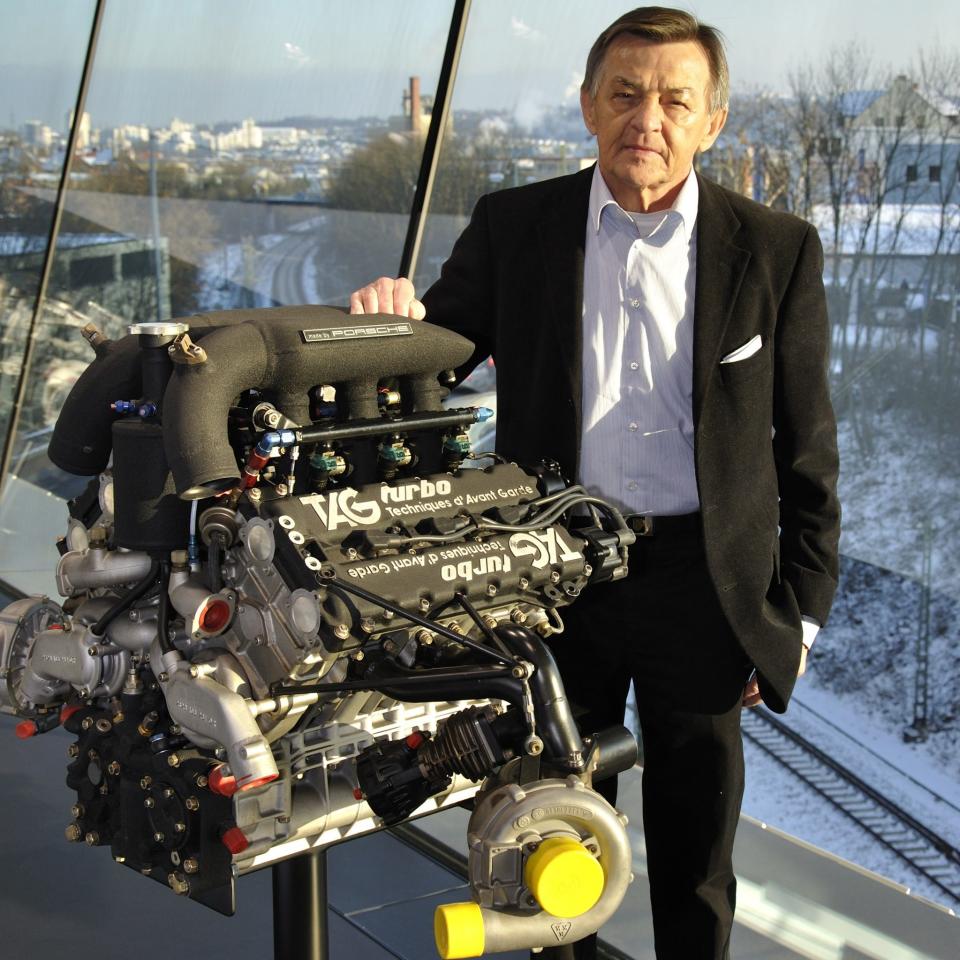Hans Mezger, car engine designer who powered Niki Lauda and Alain Prost to world titles – obituary

Hans Mezger, who has died aged 90, was one of Germany’s senior post-war engineering figures; he was a kingpin in the development of the Porsche car company and a key figure in global motorsport. The McLaren Formula One team also benefited from Mezger’s genius, as did Harley Davidson, for whom he designed a motorcycle engine.
For more than three decades Mezger was responsible for Porsche’s most successful racing cars and engine developments, notably the introduction of turbocharging. His defining work on the air-cooled, six-cylinder, horizontally opposed engine of the original Porsche 911 sports car of 1964 led to the “Mezger engine” which was developed up until 2011.
His career at Porsche had blossomed under Ernst Fuhrmann in the late 1950s, and he went on to work on the first Porsche F1 racing car. His entire working life was spent at Porsche; he had begun in post-war Swabia the engineering crucible that was home to Porsche, Mercedes Benz, NSU and the celebrated engineering school at Stuttgart.
Mezger was typical of the Swabian engineering class which emerged from Stuttgart Technical University in the post-war period; the university had led the world in the study of automotive engineering in the years leading up to the Second World War.
Mezger was a calm, precise thinker, unfettered by academic blinkers or fixed engineering traditions. His lateral thinking contributed to the process of design research psychology at Porsche in the 1960s and 1970s, resulting in many innovations. He did not limit himself to engines, and also offered body design ideas to Porsche. But it was his radical thinking about engines that was vital to Porsche’s progress.

His ideas centred on the use of lightweight alloy, magnesium, and aluminium engine components, and he paid meticulous attention to the combustion process, as well as numerous other design refinements to engine parts such as camshafts, crankshafts, pistons, and valves. He was pivotal in the realisation of reliable, engine-turbocharging – which is now commonplace in family cars, not just sports cars.
Born on November 18 1929 at Ottmarsheim, near Ludwigsburg, Swabia, Hans Mezger was the youngest of five children; his parents owned a country inn. The Mezger family were artistic and musical and Hans became an excellent piano player.
His technical bent emerged in childhood when he became interested in aircraft and attended gliding clubs. In April 1945, aged 15, he sidestepped enlistment thanks to a faked medical rating courtesy of a sympathetic army officer.
Mezger considered an aeronautical career but in the late 1940s German aviation was restricted, so he turned to cars and motorcycles. He studied Engineering at Stuttgart Technical University, graduating in 1956.
He turned down more than two dozen job offers in order to join the fledgling Porsche company as a junior engineer in the calculation department working on tractor engine designs. Mezger soon fell under the guidance of Ferry Porsche, the son of Porsche’s founder Ferdinand.

Ferdinand Piech, another Porsche family member, became the mercurial boss of Porsche’s new motorsport department; he saw Mezger’s talents and in 1965 made him head of the racing car design department.
Mezger created new engines as Porsche strove to dominate the sport, particularly the Le Mans 24 Hours race. His 12-cylinder engine for the Porsche 917 powered the British driver Richard Attwood to victory in 1970, and many more Le Mans wins followed.
His twin turbochargers for the 917 created the “Can-Am” race car which produced more than 1,100 horsepower – the most powerful car engine then known. The road-going Porsche 911 Turbo soon debuted as Porsche’s first “supercar”.
Mezger created McLaren’s Porsche-designed, 1.5-litre V6-turbocharged F1 engine for Ron Dennis and the TAG McLaren team in the 1980s. Its triumphs included a world title for Niki Lauda in 1984, and two for Alain Prost, in 1985 and 1986; the engine won 25 grands prix between 1984 and 1987.
Retiring in 1993 to his Swabian farmhouse, he continued to work as a consultant, and in 2011 published an autobiography, Porsche and Me.
A keen motorcyclist, and amateur artist fascinated by the French Impressionists, a piano player and jazz fan, the debonair Hans Mezger was a personable and kind man. In 1958 he married Helga; she survives him with their two children.
Hans Mezger, born November 18 1929, died June 10 2020

 Yahoo News
Yahoo News 
